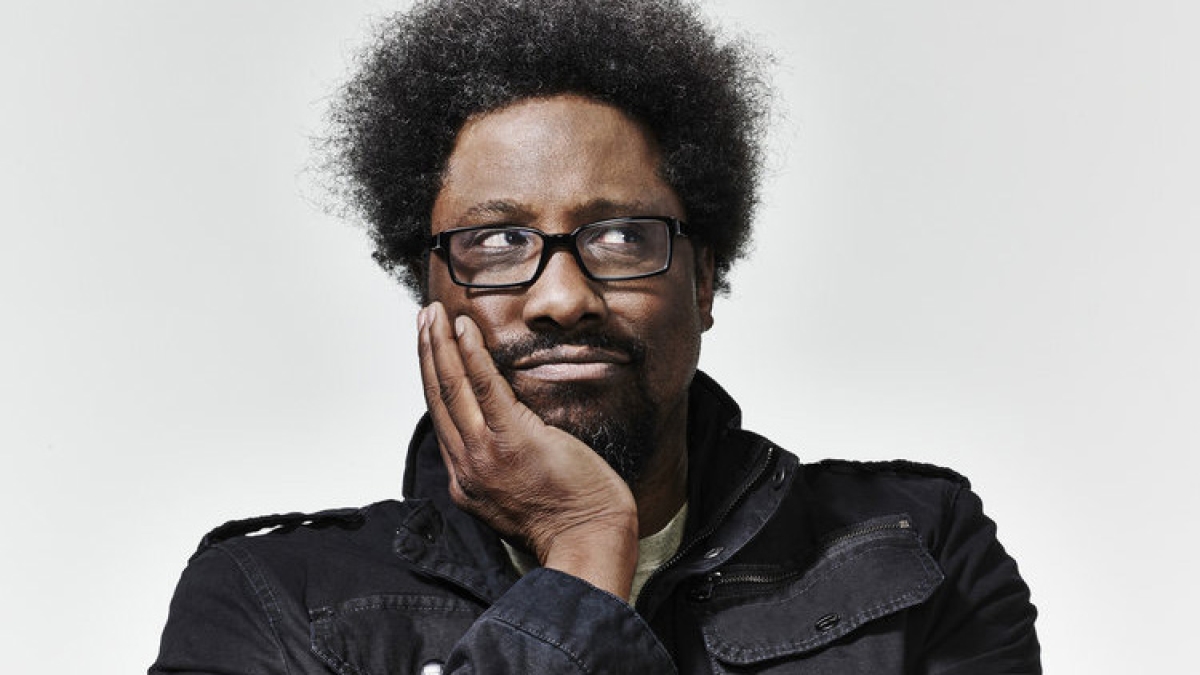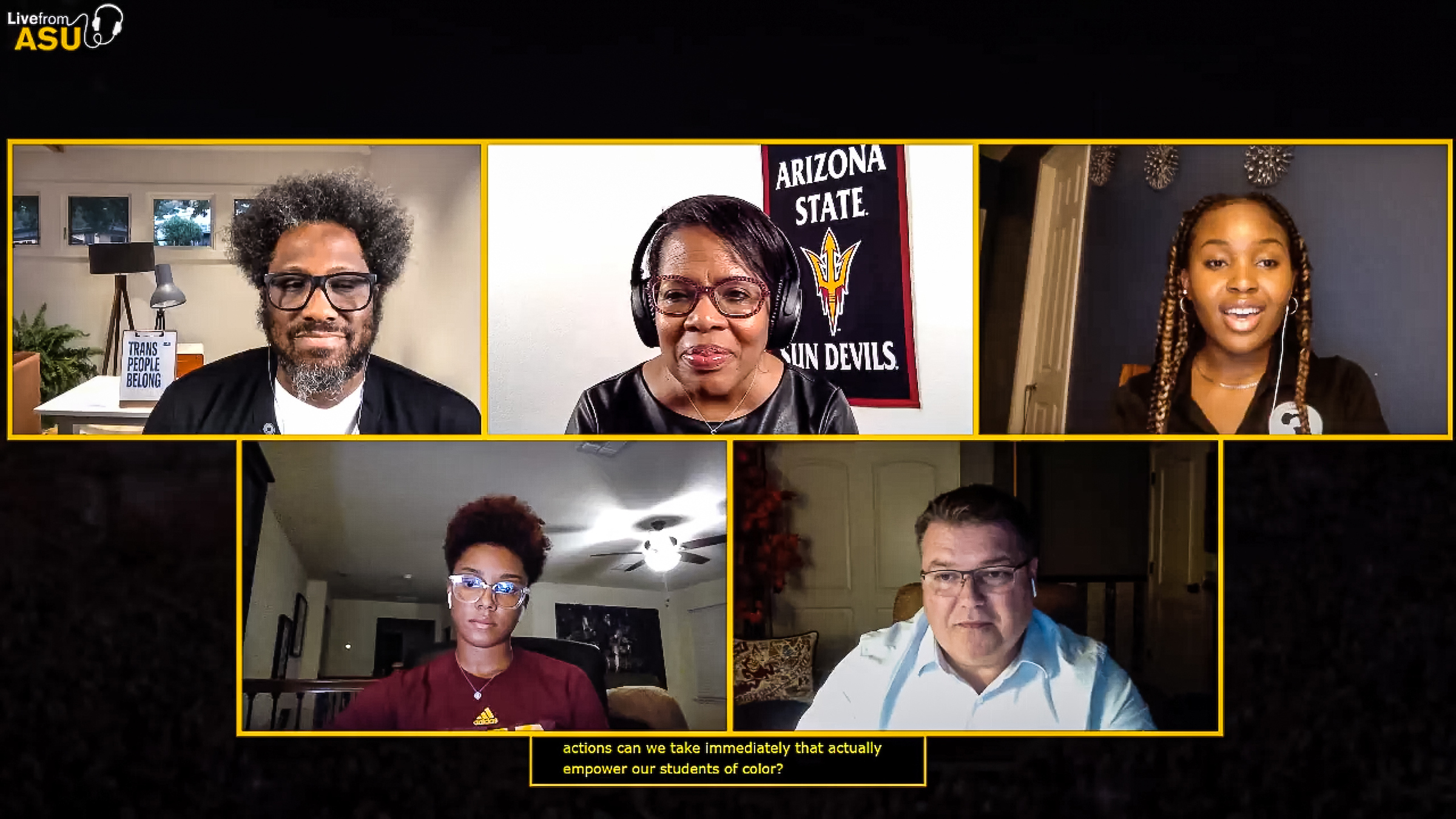America is at a 'speak-up moment,' says W. Kamau Bell at ASU event

America is at a “speak-up moment” with racial reckoning, according to W. Kamau Bell, a comedian and TV host who spoke at an Arizona State University event on Thursday night.
“I want to tell the young people now that there has not been a speak-up moment maybe in the history of the country like this, where white people have to listen,” he said.
Bell, who hosts the “United Shades of America” docuseries on CNN, spoke at a livestreamed town hall called “Black Lives Matter and the Pandemic of Racism,” sponsored by ASU 365 Community Union.
Racism is inescapable and is the bedrock of the country, he said.
“It’s important to realize that every Black person on that campus experiences racism regularly. They just do,” he told the ASU audience.
Bell’s talk was moderated by Colleen Jennings-Roggensack, ASU vice president for cultural affairs. She asked him, “Where do we start?”
“When talking about this country, we have to start with the fact that it started with the genocide of Native Americans and was built on the crime of the trans-Atlantic slave trade,” he said.
“Even for people on both sides of the aisle, that’s a hard fact to start with.”
Both Jennings-Roggensack and Bell talked about the pressures of often being the only Black person in the room. Bell said that when he was making the pilot for “United Shades of America” and was about to attend a Ku Klux Klan rally, there was no other Black person on the set to talk to about it.
“I didn’t have anyone to go, to say, ‘Am I crazy?’ ” he said.
That prompted him to demand more Black staff on the show.
“At times I refused to go forward if they didn’t do it,” he said. “They understood.”
Jennings-Roggensack praised Bell’s courage in confronting racist people on his show.
“It was about traveling to places that people didn’t expect me to be, and nobody expected me to be at a Klan meeting,” he said.
“I have a profound sense of curiosity that overwhelms my rational thinking. I want to know.”
The event included a panel discussion in which two Black ASU students expressed their frustrations with racism.
Aniyah Braveboy, president of the Black African Coalition, said her student group has been talking to university administrators about providing more resources for students. Braveboy said her group wants the university to provide a multicultural center, more faculty of color and more scholarships for Black students.
Cortney Jones, a student-athlete who is on the track team, described her reaction to being pulled over recently by a police officer while riding in a car with her boyfriend, who is also Black.
“I had a full-blown panic attack,” she said. “We had done nothing wrong.
“I’m supposed to be getting an education and living my life and you’re thinking, ‘I can’t be loud,’ ‘I can’t jaywalk,’ ‘I have to follow every little thing’ because this might happen.”
Jones said that Sun Devils Athletics is supportive of Black student-athletes who speak out and recently posted about Black Lives Matter on social media.
“And all through the comments, it’s, ‘This is politics,’ ‘I’m pulling my funding,’ ‘All lives matter,’ ‘You need to stick to sports,’ ” Jones said.
“Well, sports were canceled for us this year, and we shouldn’t have to limit ourselves to being that. First and foremost, I am Black. We are not here for your entertainment.
“It can take a toll on your mental health.”
ASU Police Chief Michael Thompson told the panel that he has worked with his officers over the past year to raise awareness of systemic racism.
“Our hearts are in the right place, but it’s not enough,” he said.
“We have to work on our relationships and invite all of our students of color to the table and recognize that they have concerns and fears that are valid.”
ASU Vice President for Cultural Affairs Colleen Jennings-Roggensack (top row, center) leads the "Live from ASU" virtual event "Black Lives Matter and the Pandemic of Racism: A Town Hall Conversation with W. Kamau Bell," on Aug. 27. The two are joined by Aniyah Braveboy (top row, right), president of ASU's Black African Coalition; Cortney Jones (bottom row, left), a student-athlete on the track team; and ASU Police Chief Michael Thompson.
Bell said that police should have metrics of success in fighting racism.
“Racism is a physical force in America. It’s not a feeling. It’s a force that exists and you can measure it,” he said.
“You can measure, ‘Are we being less racist this year than last year?’ ”
One way is to rethink interactions with Black people.
“In simple interactions with police, the person doing the hard work between the officer and a Black person is the Black person,” he said.
“For me, that needs to flip. The work has to be on the officer’s side and not on the Black person’s side to get through that interaction.”
Bell talked about why his show is successful.
“When you’re trying to educate someone, you can’t say, ‘Here’s your education.’ You have to spend more time listening and letting people get out the hard parts and the bad parts.
“Once they get it out, there’s time to go through it in a more friendly and congenial way.”
And it takes time.
“A lot of times, we get seduced into thinking that we’re one conversation away from change, and that’s never the case,” he said.
